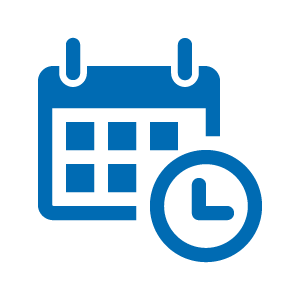Headache
Occurrence and causes
Headache is a very common symptom that nearly everyone has from time to time. Headache is somewhat more common in women than men. It may originate from muscles, blood vessels, meninges (membranes surrounding the brain), cranial nerves, periosteum (membranes covering bone surfaces), eyes, sinuses, ears, teeth or dental occlusion. The brain itself has no pain-sensing nerve endings.
There are many reasons why nerve endings in these tissues can become irritated. The causes of transient headache are familiar to most of us. They include tension, stress and lack of sleep. Recurrent headaches with the same symptoms are most commonly migraine-type and muscular headaches. Headache resulting from inflammations and infections may originate in the nasal sinuses, ears and teeth; a less common cause is meningitis. Head injuries often cause pain, the nature, extension and duration of which depend on the type of injury.
Headache can also be a symptom of a brain tumour, which often also involves other symptoms such as speech difficulties, sensory disturbances or nausea. Pain due to dental occlusion is throbbing and often occurs in the forehead or temple.
Headache can also be a symptom of some common conditions such as inflammatory and metabolic disorders, or intoxication (most commonly after consumption of alcohol). Daily use of painkillers may result in medication overuse headache, but headache may also occur during withdrawal from painkillers and other substances such as coffee or alcohol.
A considerable proportion of headaches go undiagnosed.
Self-care
Mild headache that occurs every now and then and doesn’t involve other symptoms can be safely monitored and, if necessary, treated with paracetamol or NSAIDs. This also applies to pain that will get better by itself and has a clear cause, such as alcohol consumption or a head injury causing mild pain.
Tension headache can be relieved by engaging in relaxing forms of exercise (such as Nordic walking), changing working positions, normalising sleep rhythm, massaging the pain site, and applying warm compression on the pain site. Short-term use of NSAIDs may also be helpful. Patients who have been diagnosed with migraine can usually treat migraine episodes themselves by using medication prescribed by a doctor.
When should you seek treatment?
Seek treatment in the following cases:
- Your headache is severe or has begun suddenly during physical exertion. You may have a brain haemorrhage.
- You’re using warfarin or other blood thinner and you have a new type of headache.
- You have a new type of headache with general symptoms such as fever, stiffness of the neck, deterioration of overall condition or decrease in the level of consciousness. You may have meningitis.
- You have recurrent headache episodes but no migraine diagnosis or suitable migraine treatment.
- You’ve had a head injury and have headache, nausea or vomiting that worsens within a few hours.
- You have headache that involves confusion, disorientation, diplopia (double vision), or problems with speech or balance.
- Your acute migraine episode does not respond to home medication.
- You have tension headache that cannot be alleviated with self-care methods or painkillers. The doctor may prescribe you amitriptyline or inject a local anaesthetic into the trigger points.
- Your headache constantly worsens within days and weeks.
- Your headache is associated with coughing or exertion.
- Your headache is associated with a previous symptom that does not appear to be migraine aura.
Information sources: The Finnish Medical Society Duodecim:
Terveysportti, Lääkärin tietokanta
database
FSHS General Practitioner / 29th March 2022
Service options

